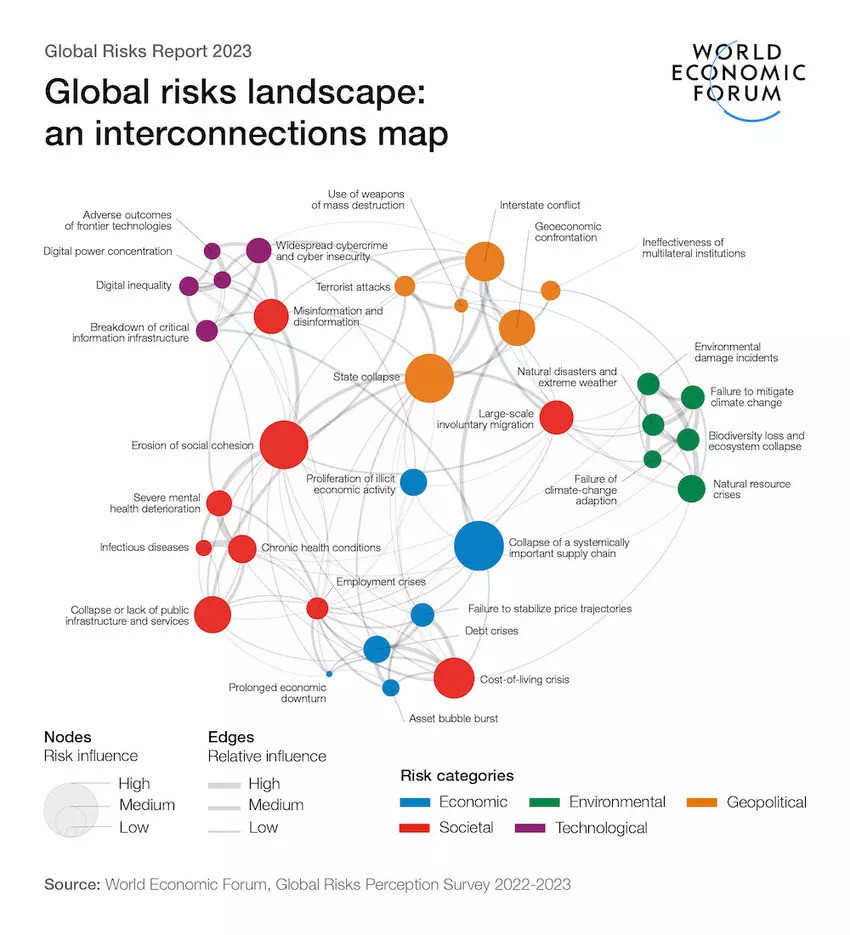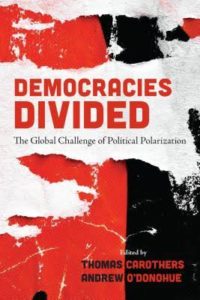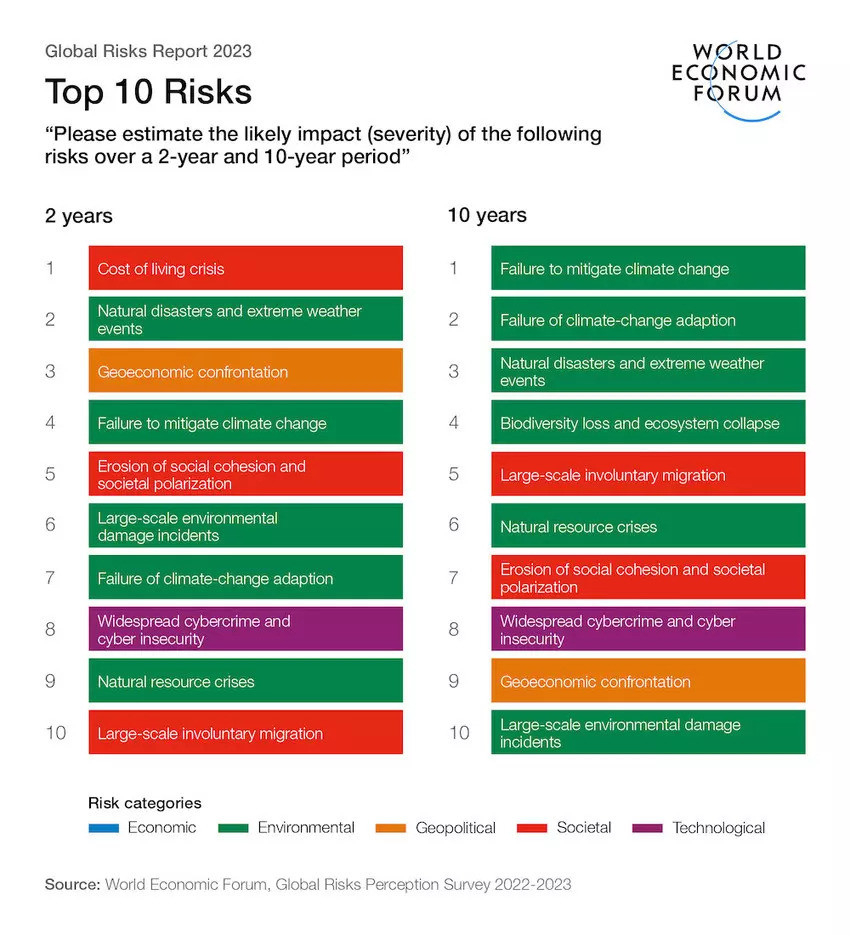
Credit: WEF
Only 13% of the world’s population are currently living under a liberal democracy, compared to 44% living under an electoral autocracy, with the share of the world’s population living in autocratizing countries rising from 5% in 2011, to 36% in 2021, according to the World Economic Forum’s Global Risks Report 2023.
A widening gap in values and equality is posing an existential challenge to both autocratic and
democratic systems, as economic and social divides are translated into political ones, the WEF adds:
 Polarization on issues such as immigration, gender, reproductive rights, ethnicity, religion, climate and even secession and anarchism have characterized recent elections, referendums and protests around the world.
Polarization on issues such as immigration, gender, reproductive rights, ethnicity, religion, climate and even secession and anarchism have characterized recent elections, referendums and protests around the world.- Mounting citizen frustration at perceived gaps in direct governmental action, human development and social mobility manifested in frequently divisive and unruly civil protests last year.
- Consequences of societal polarization are vast, ranging from a drag on growth to civil unrest and deepening political fissures. And there are indications that increasing polarization is contributing to the decline of democracies and accompanying rise in hybrid regimes.
The slow and legal erosion of the digital sovereignty of individuals can have unintended and far-reaching consequences for social control and the erosion of democracies – including, for example, by compromising freedom of the press. RTWT

Credit: WEF







